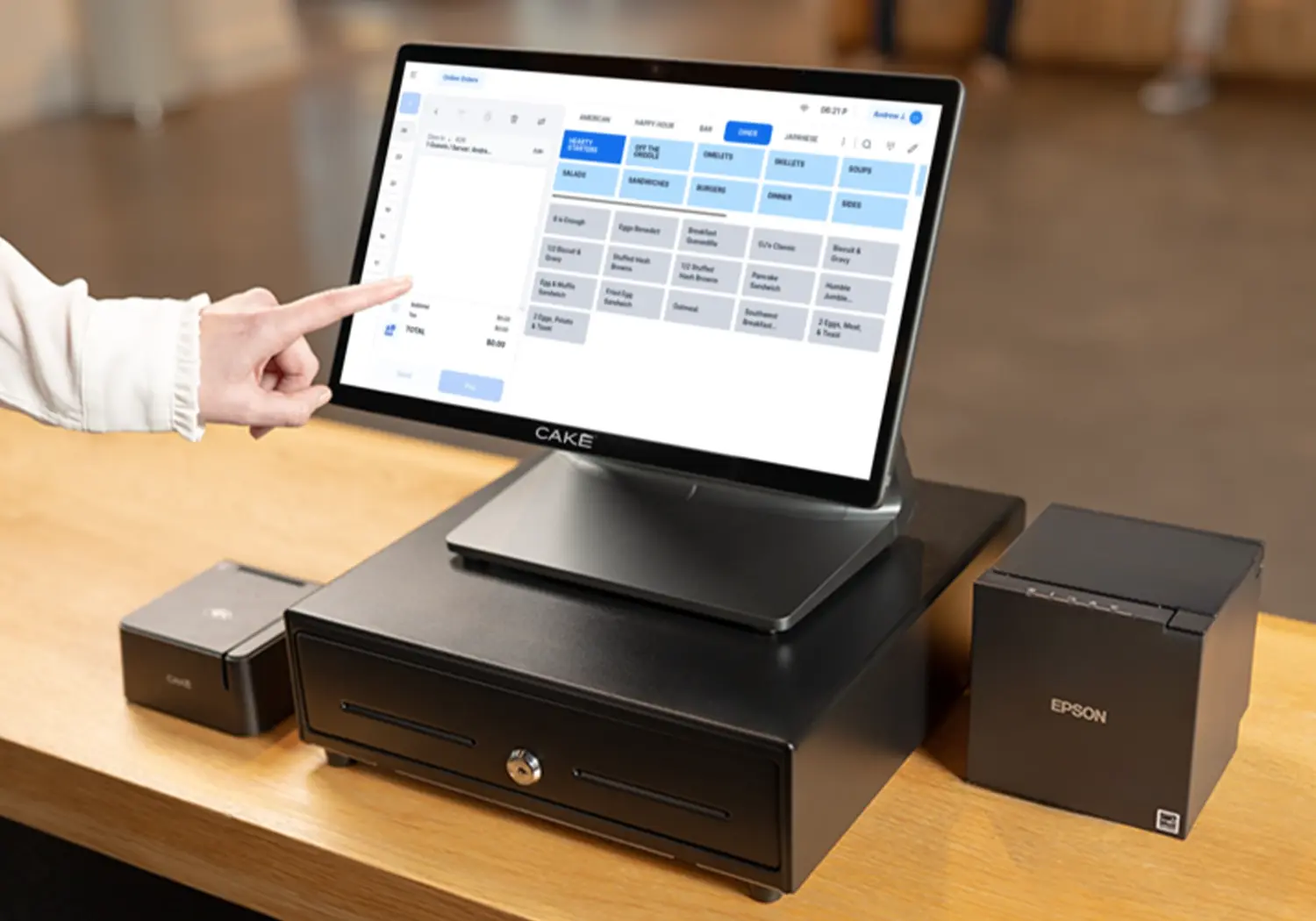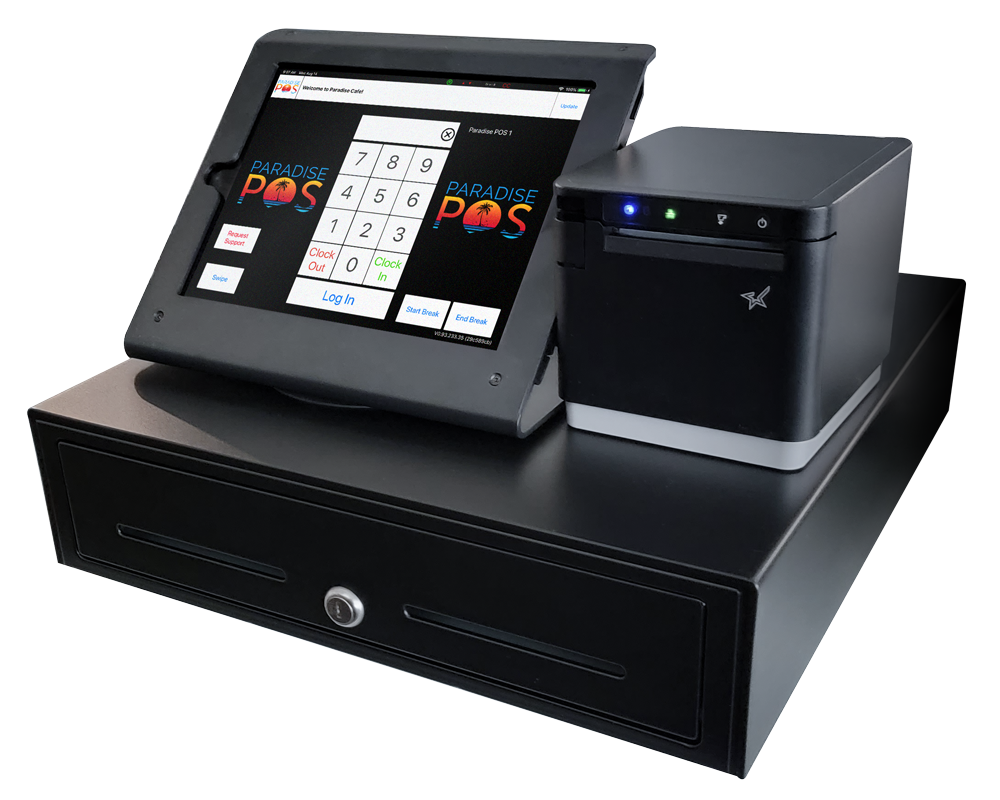Point Of Sale Can Be Fun For Everyone

POS: Retail Point-Of-Sale Solutions Streamline Transactions
The Best Strategy To Use For Point Of Sale

Hardware Parts of a Point of Sale System What makes a POS system tick? It's not simply software application; the hardware plays a starring function. Think about it as the body to the software application's brain. Without the right hardware, even the most advanced POS software application is just a quite face. Necessary POS Hardware So, what are the must-haves? Let's break it down. The main processing system, often a computer system or tablet, is the heart of the operation. The screen or touchscreen show allows personnel to connect with the system. A barcode scanner accelerate the checkout procedure. Keep in mind the days of by hand entering each code? The reliable receipt printer provides customers with a record of their purchase. A money drawer keeps your money safe and organized. A card reader allows consumers to pay with credit or debit cards. Diving Deeper: Beyond the Fundamentals But wait, there's more! Depending upon your company, you might need customized hardware. For example, a dining establishment might integrate kitchen area printers to relay orders, while a store might utilize label printers for item tagging. Ever question how your regional pastry shop quickly more info prints those delicious-looking labels? Picking the Right Hardware: A Balancing Act Choosing the best hardware isn't practically purchasing the most expensive devices. It's about finding the sweet area in between performance, sturdiness, and budget plan. A small company just beginning out may go with a more fundamental setup, while a high-volume merchant will need robust, high-performance machines. Is it better to buy brand-new or utilized? Consider your alternatives thoroughly. A new system provides the most recent technology and guarantee protection, but a refurbished system can save you money. The Future of POS Hardware What does the future hold? Anticipate to see much more combination with mobile phones, biometric scanners for employee authentication, and advanced analytics control panels displayed on bigger, clearer screens. Imagine a world where inventory is immediately upgraded in real-time as products are scanned-- a world where you can track your best-selling product from anywhere in the world. The possibilities are endless, and the hardware is continuously progressing to meet the demands these days's services. Are you prepared to upgrade your point of sale system?
Software Features and Capabilities: The Heart of Your POS System
Ever watch a seasoned barista move through a hectic early morning rush? Their secret isn't simply caffeine; it's a seamless dance with their POS system. The software is the conductor of your service symphony, orchestrating everything from sales to inventory. But what notes should you be listening for? What capabilities genuinely matter in today's market?
Inventory Management: Beyond Counting Beans
Forget spreadsheets that haunt your dreams. Modern POS systems provide real-time stock tracking, signaling you when your stock of artisanal coffee beans dips precariously low. Believe of it as a digital guardian angel, preventing those uncomfortable "Sorry, we're out!" minutes to customers. What if you could also anticipate need based upon historic data? Lots of systems now offer forecasting tools, a powerful weapon versus overstocking and lost sales. This helps prevent the predicament of running out of popular items or building up excess inventory of slow-moving items, both of which can constrain capital and space.
Sales Reporting and Analytics: Deciphering the Information
Sales information is the brand-new gold, and your POS system is the miner. Forget just knowing just how much you sold today. Dive deep into the information to discover patterns, determine your very popular products, and understand customer behavior. Which menu item pairs completely with the everyday special? Which promo resonated most with your clientele? These insights are not simply interesting; they're actionable intelligence. Without trustworthy sales reporting, navigating the complexities of service decision-making becomes like cruising without a compass, increasing the opportunity of bad moves and missed opportunities.
Customer Relationship Management (CRM): Structure Bridges, Not Walls
Remembering a routine customer's name and preferred order is captivating, however scaling that personal touch is difficult. POS systems with CRM capabilities enable you to track consumer purchase history, preferences, and even birthdays. Imagine instantly offering a discount rate on their birthday-- a small gesture that fosters loyalty and encourages repeat organization. There is the prospective snag of poor data quality, which can lead to inaccurate customer profiles and ineffective marketing efforts.
Payment Processing: Streamlining the Deal
The checkout experience can make or break a sale. Smooth combination with different payment methods-- credit cards, mobile wallets, even copyright-- is non-negotiable. Can your system handle split payments? Does it offer protected tokenization to protect customer information? A cumbersome payment procedure resembles hitting a sour note in your service symphony, potentially interfering with the entire efficiency. Guaranteeing compatibility with progressing payment technologies and adherence to security standards are critical for maintaining consumer trust and functional performance.
Employee Management: Keeping the Team in Sync
From clocking in and out to managing approvals and tracking performance, employee management includes enhance operations and enhance responsibility. Is scheduling a problem? Lots of POS systems use incorporated scheduling tools, optimizing staffing levels based upon forecasted need. A common barrier that is typically ignored is the difficulty of incorporating staff member management performances with payroll systems, which can cause mistakes and inadequacies in wage estimations.
Advanced Characteristics: Leveling Up Your Operations
- Table Management: Ideal for dining establishments, this function enables you to envision your dining room, track table status, and manage reservations.
- Commitment Programs: Reward your finest consumers and encourage repeat organization with incorporated commitment programs.
- Online Ordering Combination: Perfectly incorporate your POS system with online purchasing platforms to broaden your reach.
Choosing the right POS system has to do with more than simply performance; it's about finding a partner that can grow with your business. Consider your present needs, expect future growth, and do not be afraid to ask the difficult questions. The ideal software can change your organization from a disorderly cacophony into a harmonious masterpiece.
Industry-Specific POS System Applications
Believe of the local bakery, busy with morning customers craving fresh croissants. A generic POS system might deal with deals, but can it manage complex recipes, track ingredient inventory, or automatically change production schedules based upon sales information? Probably not. That is where the beauty of industry-specific POS systems shines.
Dining establishments and Hospitality
For busy restaurants, speed and precision are critical. How many times have you seen servers handling orders, adjustments, and splitting costs, all while attempting to supply excellent service? A dining establishment POS system improves these procedures, enabling table management, kitchen order tickets, and even online purchasing integration. These systems often consist of functions like ingredient-level stock tracking, vital for handling food expenses and minimizing waste. Ever wonder why your preferred dish is often unavailable? It might come from a lack of proper inventory management.
- Table Management
- Kitchen Order Tickets
- Online Buying Integration
- Ingredient-Level Inventory Tracking
Retail Solutions
Retail, with its varied stock and customer interactions, demands a various set of tools. Imagine a shop clothing shop struggling to track sizes, colors, and seasonal collections using a fundamental checkout system. An industry-specific retail POS system provides features like barcode scanning, consumer commitment programs, and comprehensive sales reporting. These systems can even integrate with e-commerce platforms, offering a seamless omnichannel experience for consumers. Did you understand some retail POS systems can forecast future sales patterns based on historical data? Now that is effective!
The Perils of an Inequality
Selecting the wrong POS system can produce considerable operational obstacles. A clothes store using a dining establishment POS, for example, would find it unsuitable for handling stock with sizes and colors. The absence of proper reporting and analytics could lead to mistaken buying choices and lost profits. The outcome could be similar to attempting to fit a square peg in a round hole.
Key Considerations
Choosing an industry-specific POS system needs careful examination. Consider your service's special requirements and functional workflows. Does the system integrate with existing software? Does it provide the required reporting capabilities? Is it scalable to accommodate future development? A well-chosen POS system is not simply a deal tool; it's a strategic possession that can drive effectiveness, improve client complete satisfaction, and eventually, increase your bottom line. Keep in mind, it is an investment in your organization's future, not simply a cost.
Security Factors To Consider for Point of Sale Systems
Ever heard the tale of the mom-and-pop shop that lost everything because of a single, ignored security defect in their POS system!.?. !? It's a cautionary tale, and it highlights an important element often overshadowed by the attraction of fancy features and structured operations. The reality is, a POS system is just as great as its security. What good is a system that crunches numbers in a flash if it enables lawbreakers to swipe customer's information just as quickly?
The Vulnerability Minefield
The digital landscape is a battlefield. Every POS system, regardless of size or elegance, is a prospective target. Are you genuinely got ready for the hazards prowling around the corner? The genuine pinch comes when you find that your outdated software application has a gaping hole that hackers can make use of, turning your company into an unwitting accomplice in identity theft. The problem is that hackers are crafty and are always changing their methods.
Common Security Spaces and Professional Tips
- Weak Passwords: "Password123" isn't sufficing. Usage strong, special passwords for all POS system accounts and alter them frequently. Two-factor authentication is a must.
- Unsecured Networks: Your Wi-Fi is like leaving the front door open. Protect your network with strong file encryption (WPA3 if possible) and think about a different network for your POS system.
- Out-of-date Software Application: Software application vendors spot security holes all the time. Stopping working to update is like inviting problem. Set up automatic updates or schedule regular upkeep.
- Staff member Training: Your personnel is your first line of defense. Train them to recognize phishing efforts, protect passwords, and report suspicious activity.
Data File Encryption: Your Shield Versus the Dark Arts
Think about information file encryption as a secret code. It scrambles delicate details, like charge card numbers, making it unreadable to unauthorized users. Without file encryption, your clients' financial information resemble sitting ducks, ripe for the selecting by cybercriminals. It's not just about safeguarding your consumers; it has to do with protecting your track record and avoiding large fines.
PCI Compliance: The Rulebook You Can't Overlook
If you accept charge card, you're bound by the Payment Card Industry Data Security Requirement (PCI DSS) It's a set of security standards created to secure cardholder data. Failing to comply can lead to fines, penalties, and even the loss of your capability to process charge card payments. It's a headache, yes, however it's a required one. Think about PCI compliance as the expense of doing business in the digital age.
Consider this: every transaction processed through your point of sale is a potential entry point for harmful stars. By executing robust security steps, you're not just safeguarding your business; you're securing your customers' trust and making sure the long-lasting practicality of your operations. The security of your POS system isn't simply a technical concern; it's a company vital. It requires constant watchfulness, proactive procedures, and a dedication to staying ahead of the curve.